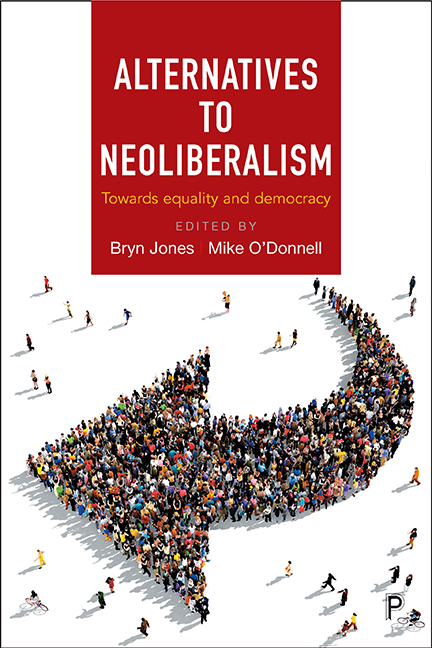Book contents
- Frontmatter
- Dedication
- Contents
- List of figures, tables and boxes
- List of abbreviations
- Notes on contributors
- Acknowledgements
- Foreword
- Editors’ preface
- Introduction: The open-market society and its opponents: an overview
- Part One Alternative paradigms and perspectives
- Part Two Reform within economic and governance restraints: pushing the boundaries
- Part Three Economic and political democracy: restoring the market-civil society balance
- Conclusion: A Brexit from neoliberalism?
- Index
Introduction: The open-market society and its opponents: an overview
Published online by Cambridge University Press: 05 April 2022
- Frontmatter
- Dedication
- Contents
- List of figures, tables and boxes
- List of abbreviations
- Notes on contributors
- Acknowledgements
- Foreword
- Editors’ preface
- Introduction: The open-market society and its opponents: an overview
- Part One Alternative paradigms and perspectives
- Part Two Reform within economic and governance restraints: pushing the boundaries
- Part Three Economic and political democracy: restoring the market-civil society balance
- Conclusion: A Brexit from neoliberalism?
- Index
Summary
The neoliberal paradigm extends far more widely and deeply than sets of party or government policies. As George Monbiot has written, it is the mainly anonymous character of neoliberalism which enables it to be simultaneously all-pervasive, yet unnoticed as an ideology (Monbiot, 2016). Our assumption is that policy makers, political actors and activists will not develop genuine alternatives until the phenomenon, its impacts and implications are fully identified, ‘named and shamed’. For elements of neoliberal ideology now dominate in the media, business and social institutions, as well as the political and policy-making sphere.
Trapped in this barely acknowledged paradigm, centre-left politicians and policy makers usually talk as though progress can be achieved by minor modifications; such as public‒private partnerships, or ‘better regulation’. So we begin by exploring why and how, particularly in the UK, neoliberalism became an all-encompassing and politically dominant ideology and discourse, with multiple, adverse, social and economic impacts. We go on to explain some authoritarian and even incipiently totalitarian tendencies in neoliberalism which undermine democratic governance and the integrity of civil society. What could reverse these trends and their pernicious consequences?
To this end we assess, in the final sections of this Introduction, some of the principal existing alternatives: socialist and social democratic paradigms which combine social justice with feminist aims and related ‘lifeworld’ values of egalitarian, community relationships (Habermas, 1981), as well as ideas from social‒Green movements. Chapters by Benton, Coote, Crouch, and Jones and O’Donnell (Chapters Three, Two, Ten and Twelve, and Conclusion) provide more detail on the significance and relevance of some of these perspectives. While Jeremy Gilbert, in Chapter One, provides a wider description and analysis of the different anti-neoliberal arguments and discourses. Comprehensive blueprints for alternatives to the broader capitalist system are not our concern here. Instead our focus is on the current, neoliberal regime of that system, in both its British and global forms. Further, in our judgement, the several varieties of capitalism – some uncompromisingly market-based, others more social democratic ‒ show that significant regime change is possible. While the proposals offered here could eventually contribute to system change, the pressing need is for more realisable alternatives to both neoliberalism and right-wing, nationalistic populism.
- Type
- Chapter
- Information
- Alternatives to NeoliberalismTowards Equality and Democracy, pp. 1 - 24Publisher: Bristol University PressPrint publication year: 2017



